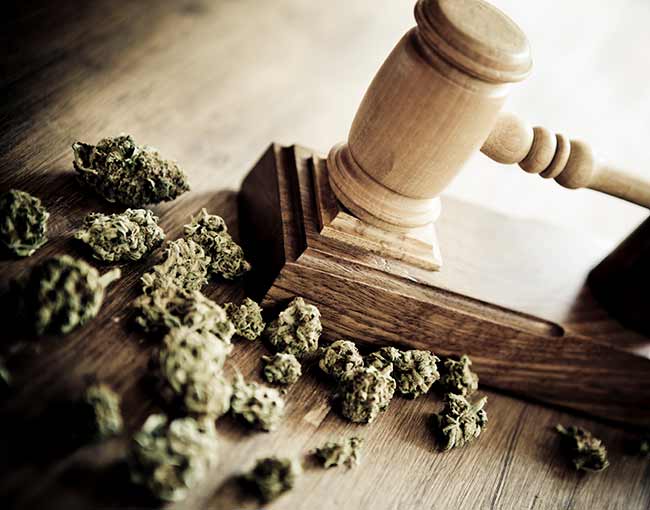As more states enact laws legalizing the sale of medical and recreational marijuana, cannabis businesses may start to question whether they could be held liable if customers cause injury or harm to others while using their products. A good reference for the cannabis industry is the dram shop laws that affect purveyors of alcohol.
A dram shop is an establishment or business that serves or sells alcohol. “Dram” refers to a unit of measure by which beverages once were sold. Generally speaking, dram shop laws impose liability on purveyors of alcohol for injury or harm caused to third persons by intoxicated patrons or customers. The Illinois Dram Shop Act, for example, is intended to place responsibility for damages caused by alcohol intoxication on those who profit from its sale and to protect the public from its dangers. The substance of these laws, which are codified by statute in 30 states, vary substantially across jurisdictions.
Is the rationale for dram shop statutes applicable to cannabis?
Traffic injuries and deaths are among the main harms that dram shop laws are intended to prevent. A recent study funded by the National Institute on Drug Abuse and the National Highway Traffic Safety Administration used a sophisticated driving simulator to compare the effects of impairment from alcohol to those from cannabis.
Researchers found that alcohol significantly increased both the number of lane departures and the speed of weaving, but that cannabis did not. The researchers also opined that cannabis-influenced drivers may attempt to drive more cautiously to compensate for their impairment, whereas alcohol-influenced drivers often underestimate their impairment and take more risk.
Nonetheless, cannabis-influenced drivers showed increased weaving within lanes that was similar to weaving among drivers with blood-alcohol levels that were at the impairment threshold in many states. Cannabis-influenced drivers also had decreased peripheral vision. Consequently, an important rationale for dram shop-type liability – preventing traffic injuries and deaths due to impaired driving – may apply to cannabis, even if studies continue to show that it impairs safe driving to a lesser extent than alcohol does.
Will dram shop-type laws for cannabis be enacted in states where its sale for recreational use is or will become legal?
The answer to this question may depend in part on the scope of legalization. Dram shop-type laws are more likely to be enacted by jurisdictions in which cannabis consumption in certain public places is made lawful. Even in those jurisdictions, the rationale for imposing dram shop-type liability might be seen to apply only to establishments that actually serve or sell cannabis products, rather than to those that merely accommodate cannabis use on their premises. If the law in a particular jurisdiction evolves to permit purveyors to serve or sell cannabis for actual consumption on their public premises, the imposition of a dram shop-type standards in that jurisdiction is more likely.
If enacted, how might dram shop-type laws affect the cannabis industry?
Newly enacted laws that set out clearly the scope and standards of potential tort liability are of obvious benefit in formulating compliant business practices. In addition, dram shop laws may contain important limitations on liability.
The Illinois statute, for example, imposes caps on recovery of damages for personal injury, injury to property, and loss of means of support or loss of society. It provides the sole remedy against tavern operators and owners of tavern premises for any injury caused by intoxicated persons or in consequence of intoxication (but does not insulate against all potential common law liability).
An analogous cannabis law with such limitations most likely would be a net benefit to the industry, depending, of course, on the scope and specifics of those limitations and the remaining provisions in the statute. The alcohol laws in two states – Nevada and South Dakota – exempt licensed establishments from this type of liability, while 22 other states limit the liability to instances where the establishment served a person who was under the legal drinking age or was obviously intoxicated. The potential consequences of including clear tort liability standards in any enactment that broadens the permissible use of cannabis deserve careful and early consideration – long before the law is enacted.
Carl Rowley is Co-Chair of the firm’s Consumer Products and Toxic Tort Litigation groups and can be reached at (314) 552-6100 or crowley@thompsoncoburn.com.
















